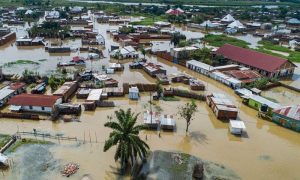
Marc Miller says the system, which currently brings 800,000 students a year to Canada, was not designed to be a cash cow for universities and colleges
OTTAWA – Canada’s Immigration Minister Marc Miller said he is looking at ways to rein in an international student system that has “gotten out of control.”
Miller’s office said he was unavailable for an interview with the National Post, but on two weekend political shows he had the same message, saying he would be looking at ways to reduce the number of international students, which has hit 800,000 students a year. The increase is considered one of many factors leading to housing shortages and rent hikes across the country.
The number of incoming students is expected to rise to 900,000 this year. The numbers have risen threefold since the Liberals came to power in 2015.
“That volume is disconcerting,” he told CTV’s Question Period on Sunday. “It really is a system that has gotten out of control.”
The Liberals have raised Canada’s immigration levels considerably, increasing to reach 500,000 new permanent residents per year by 2025 and beyond. In 2023, about 455,000 new permanent residents had been accepted by October, although the total for the year is not yet available.
International students are considered temporary residents, as are people in Canada on work permits and other groups expected only to stay in the country for a short time, and aren’t subject to the same caps.
Bank economists have expressed dismay at the economic problems caused by the Trudeau government drastically raising immigration and temporary resident rates without the proper supports in place.
Miller told CBC’s Rosemary Barton that the unlimited system now in place has to be changed to acknowledge reality.
“The challenge with the non-permanent resident target is there are none,” he said. “We have to take a look at that and rein it in.”
Several provinces, including Ontario and Alberta, have tuition caps for domestic students, preventing them from bringing in new revenue from higher fees.
But those tuition caps do not apply to international students, who already pay much more than their Canadian counterparts.
Queen’s University, a large institution in Kingston, Ont., has put in place a hiring freeze and warned that the entire institution is in danger of financial collapse as it deals with a sizeable deficit.
In 2022, Ontario’s then auditor general Bonnie Lysyk warned that the province’s schools were becoming too reliant on international students to balance their books. She noted that nearly 70 per cent of the tuition Ontario colleges collected was coming from international students.
Miller said some colleges and universities are using international students to cover holes in their balance sheets and provinces are benefiting by not having to provide more funding to schools.
“The federal government is the only actor here not making money off of this,” Miller said this weekend.
Miller has raised the amount of money international students must arrive with to take classes in Canada, stepped up scrutiny of acceptance letters to root out fraud in the system and reduced the number of hours a week international students can work off campus.
Miller said the international student system was not designed to be a cash cow for universities.
“There are some people and designated learning institutions that are gaming the system,” he said.
He said he intends to bring in more controls in early 2024 and is working with provinces, who oversee universities, on a broader plan.
“We need to signal to them that the bar is closed and we need to figure this out,” he said.
Housing Minister Sean Fraser, who held the immigration portfolio previously, suggested a cap on international students in August, 2023, shortly after switching jobs.
At the time, Colleges and Institutes Canada, an advocacy group for colleges, said it was unfair to blame international students for Canada’s housing problems.
“We need sustainable solutions and an integrated approach that underscores shared responsibility across all levels of government. Although implementing a cap on international students may seem to provide temporary relief, it could have lasting adverse effects on our communities, including exacerbating current labour shortages,” the association said.
Universities Canada also said the government should be careful in making any changes to the program.
“International students bring important knowledge, diversity, and skills to our campuses and workforce, and we must continue to welcome them to study at Canadian universities,” the association said in a statement. “Any policy changes to the international student program should avoid unintended consequences that will adversely affect universities who have demonstrated responsible and sustainable growth.”
.
Sources: National Post | rtumilty@postmedia.com
.
_____________________________________________________________________________________Xafiiska Wararka Qaranimo Online | Mogadishu, Somalia
_____________________________________________________________________________________Advertisement
_____________________________________________________________________________________







